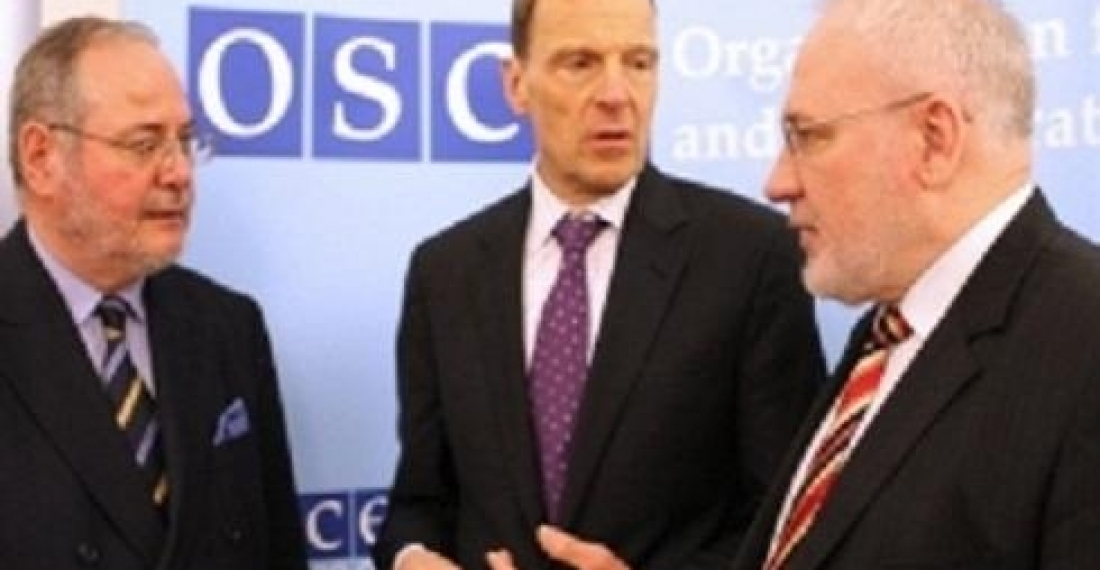There is increasing concern in the international community about the possible negative effects of the unexpected release of Ramil Safarov on the delicate situation in the South Caucasus region, and peace efforts to resolve the Nagorno-Karabakh conflict. Safarov, an Azerbaijani military officer who was convicted of murdering an Armenian counterpart whilst both were attending a NATO course in Hungary, was repatriated by Hungary on Friday to Azerbaijani jurisdiction, where he was supposed to serve his lifelong sentence. He was instead immediately pardoned and promoted.
The Russian Foreign Ministry on Monday expressed deep concern at the news.The Ministry statement added that the actions of the Azerbaijani and Hungarian authorities run counter to the internationally-agreed efforts spearheaded by the OSCE Minsk Group, first and foremost aimed at lessening tension in the region.
In Brussels, a spokesperson for the EU Foreign Policy Chief, Catherine Ashton called on the authorities of Armenia and Azerbaijan not to escalate the tension in bilateral ties, as a result of Ramil Safarov's extradition to Azerbaijan. The spokesperson, Maja Kocjancic said "We call upon Azerbaijan and Armenia to manifest restraint in their public statements, so they may refrain from any escalation [of tension] in this situation." According to her, the EU is concerned over the possible consequences which this situation could have for the entire South Caucasus region.
In the meantime in Paris, the co-Chair of the OSCE Minsk Process, representing France, the US and Russia had seperate meetings with the foreign ministers of Armenia and Azerbaijan. The talks were overshadowed by the Safarov case.
A statement posted on the OSCE website stated that:
"The co-Chairs discussed with the two Ministers the August 31 decision of the Government of Azerbaijan to pardon Ramil Safarov, an Azerbaijani army officer who had been serving a life sentence in Hungary for the brutal 2004 murder of an Armenian officer in Budapest. They expressed their deep concern and regret for the damage the pardon and any attempts to glorify the crime have done to the peace process and trust between the sides.
The Co-Chairs reiterated to both Ministers that, as their Presidents stated in Los Cabos on June 19, there is no alternative to a peaceful settlement of the Nagorno-Karabakh conflict. They will continue to maintain contacts with the sides to reduce tensions and advance the peace process."
In the meantime it was announced in Yerevan that the special session of the Armenian Parliament to discuss the issue will be held on Wednesday at noon. A statement is expected, but it is not clear if further action will be taken. Armenia has in the meantime withdrew a number of its personnel who were on training programmes in Hungary in a further move to downgrade relations with the central European country.
However in Baku, a spokesperson for the Ministry of Foreign Affairs repeated that both Hungary and Azerbaijan had acted within a correct legal framework and had respected international conventions.
source: commonspace.eu
photo: The Co-Chairs of the OSCE Minsk Group, Ambassadors Jacques Faure of France, Robert Bradtke of the United States, and Igor Popov of the Russian Federation.







